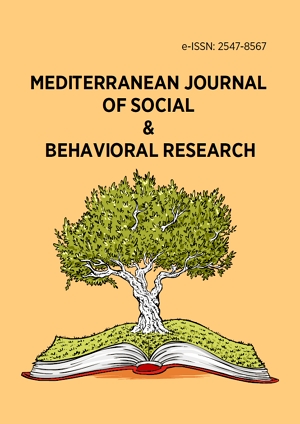Mediterranean Journal of Social & Behavioral Research
Mediterranean Journal of Social & Behavioral Research (MJOSBR), founded in 2017, publishes papers on all aspects of social, behavioral, psychological and educational studies.
Mediterranean Journal of Social & Behavioral Research (MJOSBR) is published by Modestum DOO, Serbia.
Current Issue
Volume 10, Issue 1, May 2026
(In Progress)
Research Article
Effects of indoor and outdoor play on children’s gross motor development: Implications for early childhood instructional design
MEDITERR J SOC BEH RES, Volume 10, Issue 1, May 2026, 3-12
https://doi.org/10.29333/mjosbr/17559Research Article
Overlooked or overemphasized? An evaluation of admission criteria and access to higher education in Nigeria
MEDITERR J SOC BEH RES, Volume 10, Issue 1, May 2026, 13-22
https://doi.org/10.29333/mjosbr/17560Research Article
Practices, affordances, and challenges of collaborative teaching in mathematics content and language integrated learning classrooms
MEDITERR J SOC BEH RES, Volume 10, Issue 1, May 2026, 23-35
https://doi.org/10.29333/mjosbr/17768Research Article
Breaking barriers: The shift to English as a medium of instruction in higher education-University of Tlemcen as a case study
MEDITERR J SOC BEH RES, Volume 10, Issue 1, May 2026, 37-44
https://doi.org/10.29333/mjosbr/17815Research Article
Social media, absorption, and stress: Divergent paths to self-esteem
MEDITERR J SOC BEH RES, Volume 10, Issue 1, May 2026, 45-52
https://doi.org/10.29333/mjosbr/17853
